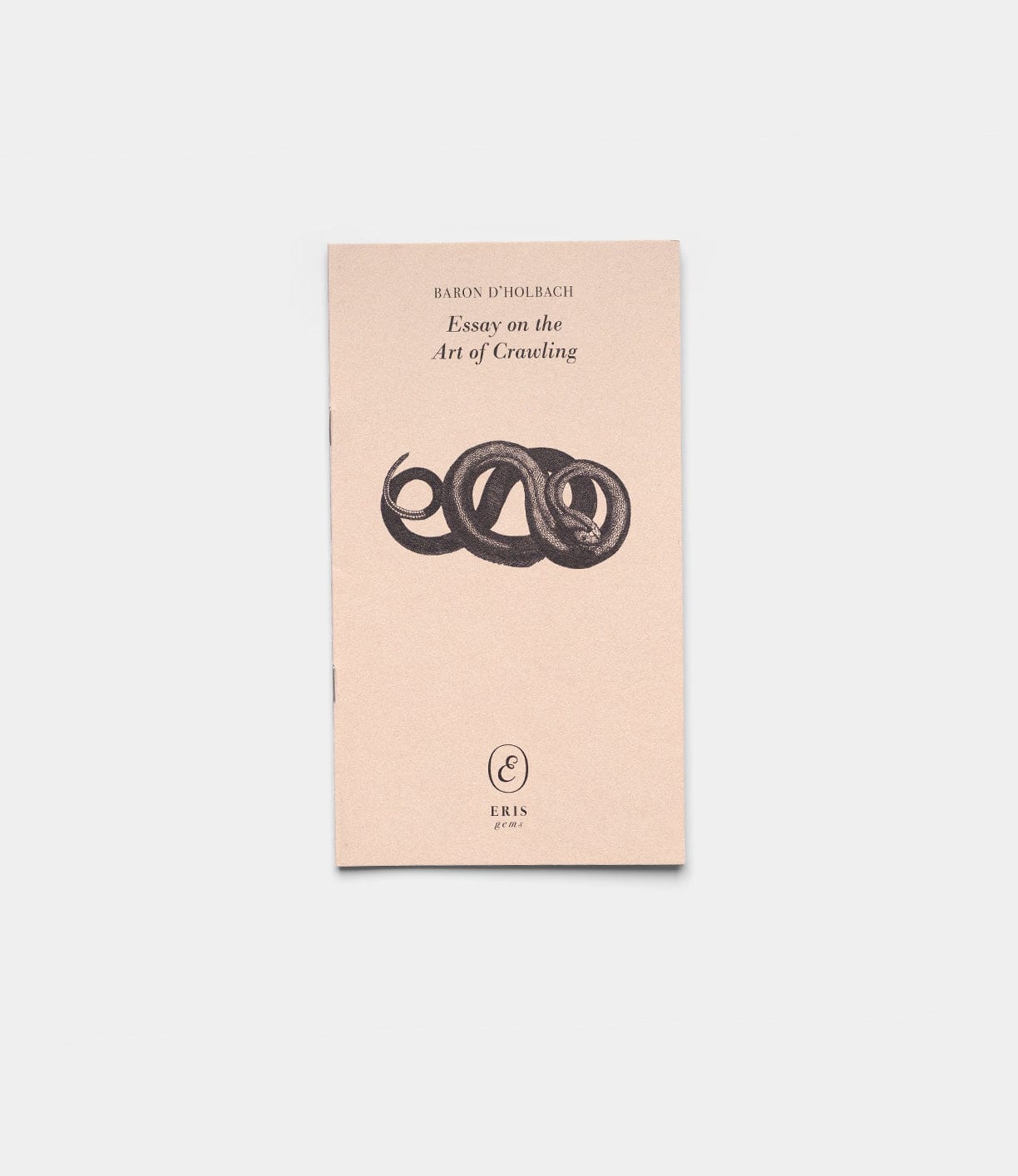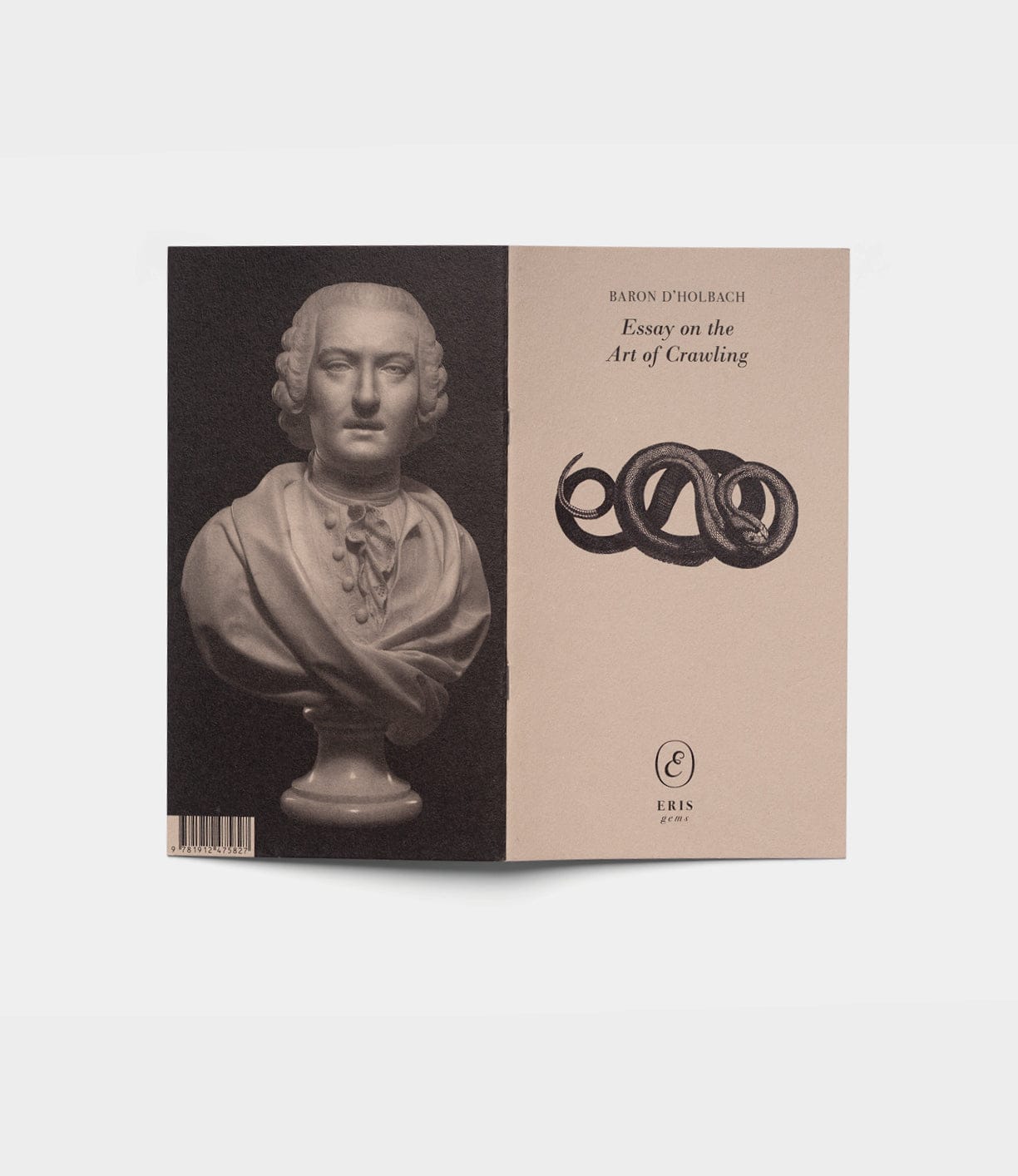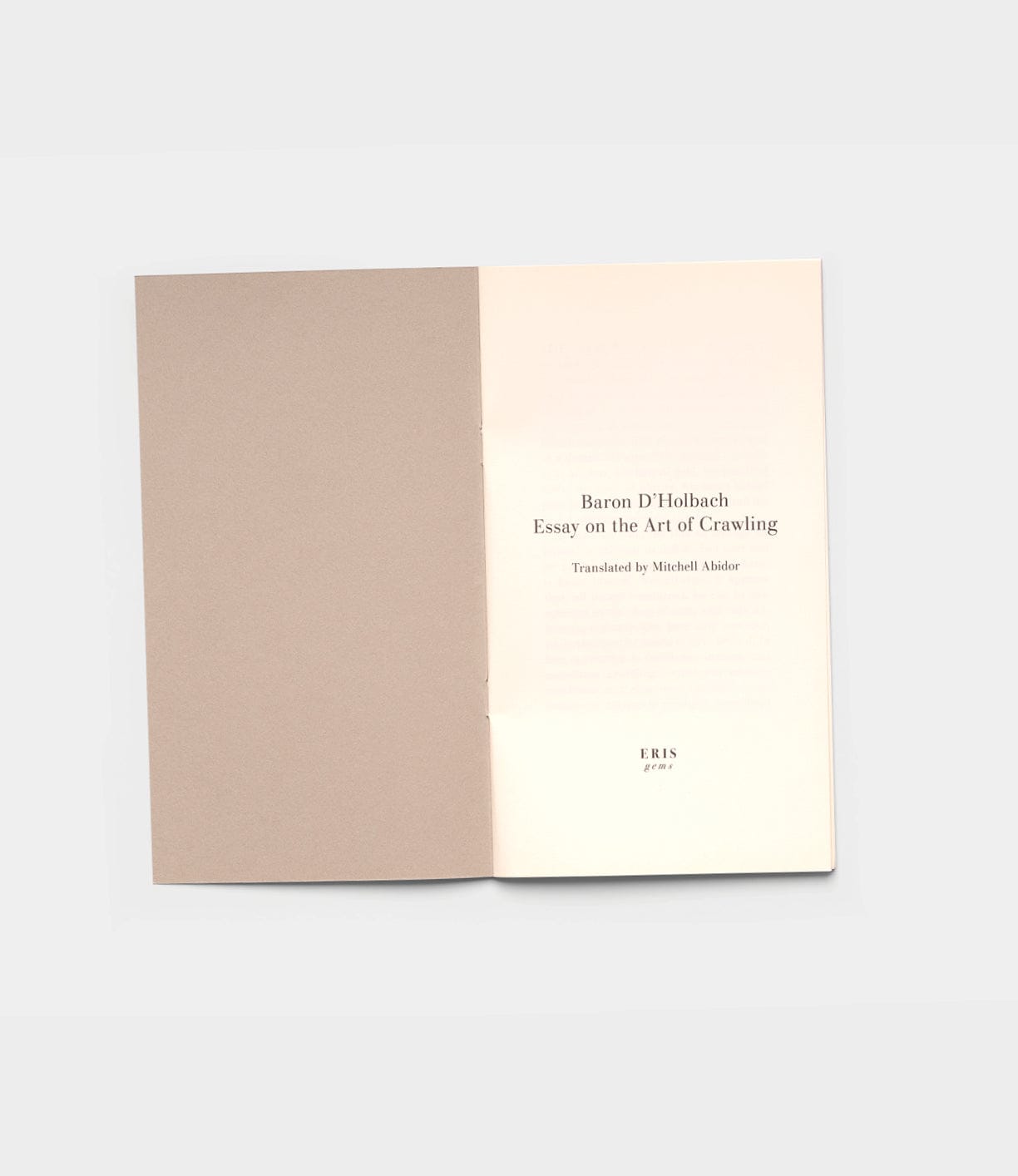Essay on the Art of Crawling
Essay on the Art of Crawling
Essay on the Art of Crawling
Essay on the Art of Crawling
"Serpents and reptiles reach the heights of mountains and rocks, while the most fiery of steeds can never climb there." Baron d'Holbach's opening metaphor announces his intention: this 1776 essay is a field guide to advancement through flattery, self-abasement, and strategic groveling. It's satire sharp enough to draw blood.
D'Holbach catalogs the techniques of the professional sycophant with scientific precision, mapping the machinery of power in European courts. The essay cuts because it's as relevant now as then—the same dynamics play out in corporate boardrooms, social media, anywhere ambition meets hierarchy. But d'Holbach also makes a case for something increasingly rare: moral independence and personal dignity. Written during the Enlightenment, it reads like it was published yesterday. Brief, brutal, and unexpectedly useful for navigating modern life.
Eris Gems are small pamphlets that capture brilliant ideas in their most distilled form—arguments substantial enough to challenge, compact enough to finish in a single sitting. Each pamphlet presents a single thesis from contemporary thinkers. Paul Henri Thiry (1723-89), better known as Baron d’Holbach, was a major thinker of the Enlightenment period and, in his treatise The System of Nature, the author of one of that era’s most devastating attacks on Christianity.
By Baron d'Holbach, translated by Mitchell Abidor, 16 pages, published by Eris Editions
Couldn't load pickup availability





